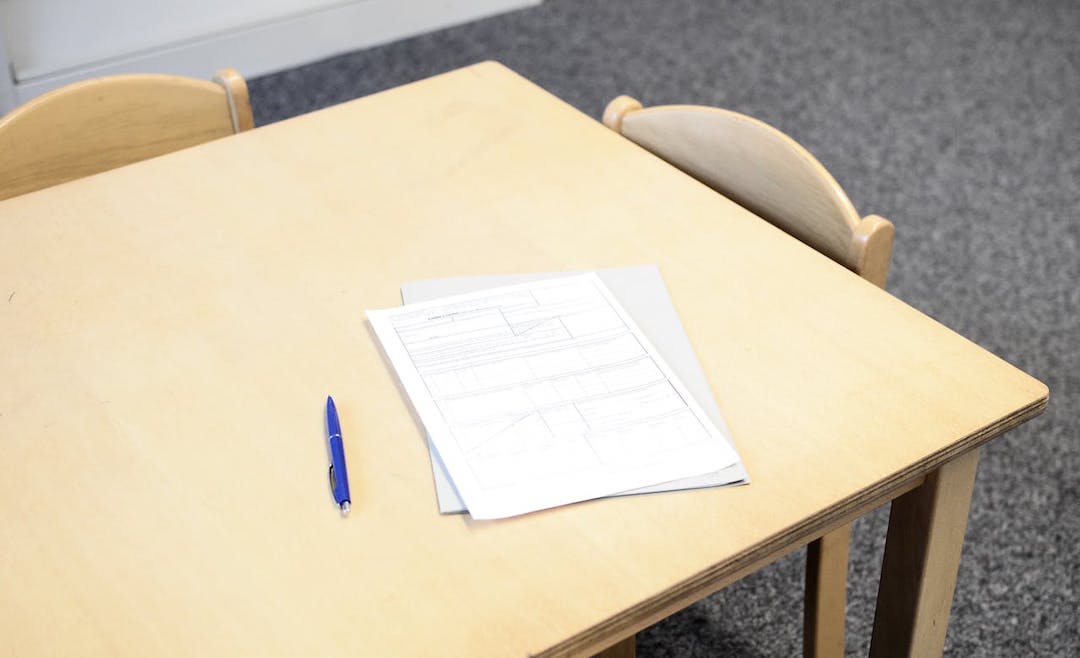If you’re thinking about working in a pharmacy, you may be considering a career as a pharmacist or pharmacy technician.
A pharmacist is considered higher up and has extensive knowledge about medications and their effects. Pharmacists help answer patient questions about medication and can recommend over-the-counter medications. They also advise physicians on medication selection, dosage, and potential interactions. Pharmacists almost always have a doctorate degree in pharmacy (PharmD), which takes around 8 years including undergrad and pharmacy school.
A pharmacy technician assists the pharmacist in their responsibilities. They handle a lot of the administrative tasks in a pharmacy like taking inventory and working at the cash register. A pharmacy technician typically needs a certificate and/or license, which typically only takes around 6 months if you choose an online program.
This guide goes over key differences between pharmacists and pharmacy technicians to help you decide which is better for you.
Pharmacy Technician vs Pharmacist Overview
Though both are medical professions that work in a pharmacy, there are key differences, as well as similarities, between pharmacists and pharmacy technicians.
Pharmacists have high-level knowledge about medications and are considered experts in recommending prescriptions and dosage. They typically have a doctorate degree and earn over $100,000 per year.
Pharmacy technicians have basic knowledge about medication and primarily assist the pharmacist with administrative and organizational responsibilities. Pharmacy techs make around $40,300 per year, on average.
Here’s a quick overview of each:
Pharmacy Technician Overview
Pharmacy technicians are healthcare workers who assist a pharmacist in helping patients and customers get the medication they need. Pharmacy technician responsibilities include:
- Measure or count medication doses
- Mix medication compounds
- Verify prescription medications
- Assist customers with their questions about medication
- Handle insurance claims
- Administer vaccines
- Keep the pharmacy organized
- Manage the cash register and deal with billing
Each state has different requirements for pharmacy technicians. In some states, you will need to complete an accredited pharmacy technician training course, pass a certification exam, and apply for a pharmacy technician license. In other states, you only need a high school diploma or GED.
Most pharmacy technicians work in retail pharmacies and spend their days assisting customers, organizing medications, and handling payments and insurance claims. Some pharmacy technicians work in hospitals and can mix and deliver medications to different hospital units.
Pharmacist Overview
A pharmacist is an expert on medications. Medical doctors often need the help of a pharmacist to create care plans and choose medications.
Responsibilities of a pharmacist include:
- Checking a customer's medical history to avoid drug interactions
- Administering vaccines
- Teaching customers how to take their medication
- Teaching customers about side effects and medication dangers
- Testing a customer's blood sugar, cholesterol level, or blood pressure
- Consulting with physicians and making medication recommendations for patients
- Providing basic wellness checks
- Managing the pharmacy and directing technicians in their work
- Giving recommendations for over-the-counter medications
To become a pharmacist, you will have to earn a doctorate degree from a pharmacy program accredited by the Accreditation Council for Pharmacy Education. Then, you will have to pass both the North American Pharmacist Licensure Examination (NAPLEX) as well as the Multistate Pharmacy Jurisprudence Examination (MPJE). You can learn more about pharmacy school requirements and prerequisites here.
Pharmacist usually spends their time reviewing physician orders and patient health histories to make sure that prescribed medications are safe and will be effective. They also spend lots of time educating patients and healthcare workers on medication safety.
Most pharmacists work during regular business hours, but those who work in hospitals are often needed for nights, weekends, and holidays.
Key Similarities Between a Pharmacy Technician & Pharmacist
Pharmacy technicians and pharmacists work together to help customers or patients get the best medical care possible.
Similarities between the two include:
- Need a license. In most states, both pharmacy technicians and pharmacists need to be licensed. Licensing requirements for the two are different but typically include a background check and drug screen.
- Responsible for patient safety. Both of there’s professionals' most important job is to keep patients safe. Medication errors are a common cause of death and patient injuries, and both pharmacists and pharmacy technicians can help prevent these problems.
- Work hours. Both of these careers typically require people to work regular business hours, with hospital employees working some weekend, night, and holiday shifts.
- Location. Since they typically work Together, pharmacists and pharmacy technicians usually work in the same locations—mostly retail pharmacies and hospitals.
- Working with medications. Both of these jobs require some knowledge of medications and medication safety.
Key Differences Between a Pharmacy Technician & Pharmacist
Although they work together, there are some big differences between a pharmacist and a pharmacy technician.
Differences between the two include:
- Education level. Pharmacy technicians only need a certificate, which can be obtained in as little as 4 months. Pharmacists, on the other hand, spend about 6-8 years earning a doctorate degree.
- Salary. Pharmacists earn almost four times more than pharmacy technicians do.
- Scope of practice. Since they do not have the same education level, pharmacy technicians cannot teach patients about medication or make medication recommendations.
- Daily responsibilities. While pharmacists spend most of their time reviewing prescriptions and coordinating with physicians, pharmacy technicians primarily deal with administrative tasks.
Salary Differences for Pharmacy Technicians & Pharmacists
Though they both work in similar locations, pharmacy technicians and pharmacists have very different earning potentials.
Pharmacists typically earn around $136,030 per year or $65.40 per hour. Pharmacy technicians earn a salary of about $40,300 per year or $19.37 per hour, on average.
Job Outlook for Pharmacy Technicians & Pharmacists
Expected job growth for pharmacy technicians is a little better than it is for pharmacists. Pharmacy technician job opportunities are expected to increase by 6% over the next 10 years, while pharmacist job opportunities are only expected to increase by 3%.
If a pharmacy technician wants to advance their career, they typically have to return to school. Many people work as pharmacy technicians to get experience before going to school to become a pharmacist.
Pharmacists may advance their careers by becoming pharmacy managers, getting an executive job at a pharmaceutical company, or becoming a leader in pharmacy research.
Necessary Skills for Pharmacy Technicians & Pharmacists
Pharmacy technicians and pharmacists require a lot of the same skills, although pharmacists must have more advanced knowledge.
Skills necessary for pharmacy technicians include:
- Attention to detail
- Good customer service skills
- Basic pharmaceutical knowledge
- Basic anatomy and physiology knowledge
- Basic math skills
- Organization
While pharmacists frequently work with customers, they focus more on teaching than customer service.
Skills necessary for pharmacists include:
- Good teaching skills
- Expert understanding of medications
- Great memory
- Attention to detail
- Effective communication
- Leadership
How to Choose Between Becoming a Pharmacy Technician & Pharmacist
Pharmacists and pharmacy technicians have many similarities but ultimately are different career choices. If you are trying to choose between the two, there are a few things to consider:
- Education requirements. If you are not a big fan of school, you probably won't want to become a pharmacist. Pharmacists spend 6 to 8 years in school before they can begin working. In contrast, pharmacy technicians can complete their training in as little as 4 months.
- Salary. If you are willing to put in the time to study, becoming a pharmacist is a good option. Pharmacists earn well over $100,000 per year, compared to pharmacy technicians who typically make less than $50,000.
- Ultimate goals. If you love learning about medications and problem-solving, either job is a good fit for you. However, becoming a pharmacist is a long-term commitment, while being a pharmacy tech requires a lot less upfront time and money. If you are not sure what your ultimate goals are, you can start out as a pharmacy technician and see if you like it.
- Responsibility. While both professions are responsible for keeping patients safe, the pharmacist is ultimately responsible for making big decisions about medication administration. Medications can cause harmful and even deadly side effects, and a pharmacist has a big responsibility to help patients and physicians avoid harm.
Education & Certification Requirements for Pharmacy Technicians & Pharmacists
Pharmacy technicians usually need to attend a training program and pass a certification exam. These training programs can be done online, at a community college, or through an associate degree program.
The fastest pharmacy technician program takes around 12 weeks or 3 months to complete and costs just a few hundred dollars. The longest programs result in an associate degree and are two years long. Associate degree programs may cost up to $40,000 if you choose an expensive school.
You can learn more about the cost of pharmacy technician training programs here.
Pharmacists have to first complete an undergraduate prerequisite courses, then get accepted into a doctoral program and complete another four years of school. Some accelerated programs can be completed in six years.
With that being said, pharmacy school isn't too had to get into compared to other advanced healthcare programs like med school and PA school.
Pharmacist school costs anywhere between $65,000 and $200,000.
Comparing a Day in the Life for Pharmacy Technicians & Pharmacists
While pharmacists and pharmacy technicians work in the same locations, their daily routines can look quite different.
A pharmacy technician will generally begin their day by taking inventory of all of the medications, restocking items as needed, and getting things cleaned and organized for the day. They will then spend the day giving customers their filled prescriptions or working at the cash register to get customers checked out.
A pharmacist will start their day by looking over new prescription orders that have come in and making sure that they are ordered correctly. They will then look at each patient's medical history and list of other prescriptions to make sure that the new prescription is safe. They may call physicians to recommend changes as needed.
A pharmacist will spend the rest of their day working on prescription refills and educating patients about their medications. Pharmacists in hospitals also respond to all emergencies to help physicians decide which medications to give.
Job Growth & Progression for Pharmacy Technicians & Pharmacists
If you start out working as a pharmacist and want to progress, you will have to go back to school or choose a new profession. Pharmacy technicians do not have many growth opportunities other than becoming an instructor for other pharmacy technicians.
Although there aren't many growth opportunities for pharmacy technicians, working as a pharmacy technician does give you good experience if you want to apply to medical school or pharmacist school. Pharmacy technicians are often accepted into pharmacist programs, medical school, and nursing school.
Pharmacists have many more options than pharmacy technicians do. They can become owners of their own pharmacies, pharmaceutical researchers, hospital administrators, or college professors. Some pharmacists even take jobs as government regulators in the FDA or working as representatives for large pharmaceutical companies.
Other Pharmacy Technician Resources
Here are some other resources we have about pharmacy technicians that can help you learn if it’s the right career for you:
- Steps to Go From Pharmacy Technician to Pharmacist
- Pharmacy Technician vs. Pharmacy Assistant
- Pharmacy Technician vs. Medical Assistant
- Pharmacy Technician License vs. Certification
- Is Pharmacy Technician a Good Job? Pros & Cons
- How to Become a Pharmacy Technician
- Pharmacy Technician Requirements by State
- Pharmacy Technician Career Path & Advancement Opportunities




.svg)












